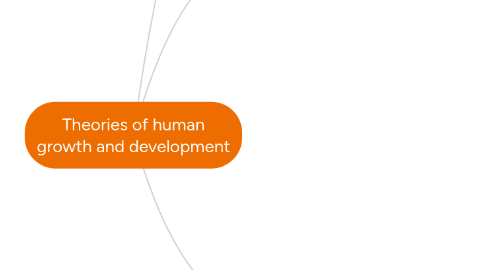
1. Theories that emphasize biological factors
1.1. Evolutionary theory (represented by John Bowlby and his attachment theory)
1.1.1. separation from mothers was very traumatic for children and that children who failed to establish a firm attachment by the age of 3 would subsequently be unable to do so and would suffer severe psychological problems
1.1.2. “The good mother must …be always available and always attentive” (Burman, 2008, 132).
1.2. psychosexual theory (Sigmund Freud)
1.3. cognitive developmental theory (Jean Piaget
2. Theories that emphasize environmental factors
2.1. learning theories (John Watson, B.F. Skinner)
2.2. social role theory (Bernice Neugarten, Albert Bandura)
2.3. Life course theory (Glenn Elder).
2.3.1. the life course encompasses both the individual and the social by recognizing the importance of social structures and historical context as they shape individual aspiration” (p. 69)
2.3.2. “Development is lifelong, and…aging is a process that begins at birth, not some arbitrary point later in life”, (Settersten, 2003, p. 2).
3. Theories that emphasize the interaction of person and environment
3.1. psychosocial theory (Erik Erikson, James Marcia)
3.1.1. He proposed that human beings change throughout their lifetime in a series of eight psychosocial stages.
3.1.2. According to Erikson, our ego identity is constantly changing due to new experience and information we acquire in our daily interactions with others. In addition to ego identity, Erikson also believed that a sense of competence motivates behaviors and actions. Each stage in Erikson’s theory is concerned with becoming competent in an area of life. If the stage is handled well, the person will feel a sense of mastery, which he sometimes referred to as ego strength or ego quality. If the stage is managed poorly, the person will emerge with a sense of inadequacy.
3.1.3. core stages (trust, identity, and ego integrity
3.1.4. Although on the basis of Erikson’s theory we predicted that Basic Trust versus Mistrust would remain stable over adulthood, we instead observed a significant positive linear trajectory. This finding is consistent with the ‘‘matrix’’ interpretation of Erikson’s theory, that is, that psychosocial issues continued to be revisited and reworked throughout life (154)
3.1.5. the development of a basic sense of trust in infancy is a fundamental precursor to further healthy personality development. (154)
3.1.6. the issue of Ego Integrity versus Despair gains in importance when the individual begins to come to grips with the notion of accepting his or her lifecycle as being the only one that could have been lived.
3.1.7. It seems the logical question to ask next is not is there change in adulthood but who changes and what predicts that change.

